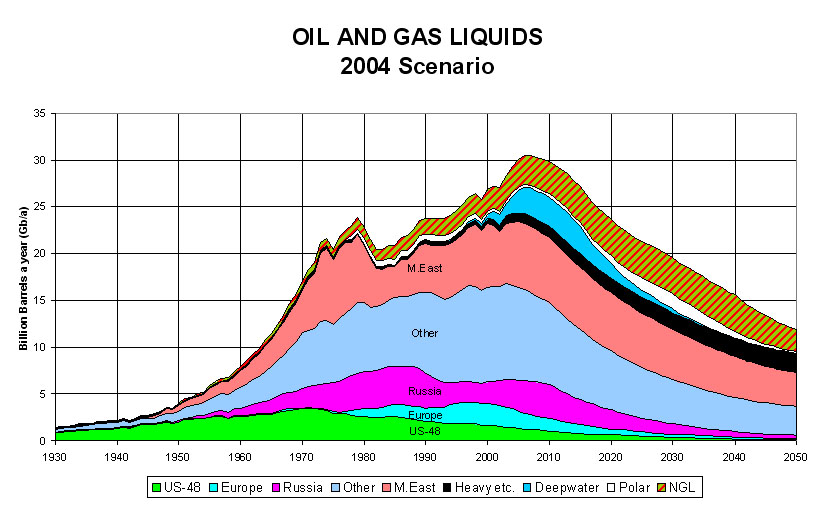Last Update: July 25, 2015
From time to time there is a call for freedom from oil by increasing the “Corporate Average Fuel Economy” (CAFE Standard) of the U.S. vehicle fleet. It’s a great idea, decrease fuel usage because of fuel efficient vehicles and things will be great. Pollution will be lessened and the many other positive benefits will usher in a new age of enlightenment, or some such. While decreasing fuel usage through increased fuel economy is a good thing, because it lessens the negative impact of our current transportation system, but it won’t give us freedom from oil, will it?
Using less oil is like a 2 pack a day cigarette smoker decreasing to 1 pack a day. They’re smoking less, it may be better for their health, the tobacco companies are getting less money, but they’re still smoking and they’re still keeping the tobacco companies in business. Further that smoker who decreases their intake might be offset by a new smoker who is themselves smoking 3 packs a day.
The analogy from tobacco to oil companies is interesting. Both sell a product that many of us are dependent on, but has various negative consequences, and wisdom points to the obvious need to eliminate use of both to eliminate the negative consequences.
On the one hand decreased oil use would be a good thing because it’s less bad than the current situation. On the other hand it leaves us continuing to use oil, still causing bad effects. What’s a global society to do?
There are several problems stemming from fossil oil usage that arise primarily from the rate of usage. Lessening the rate of fossil oil usage will lessen the impact of these problems:
- Peak Oil: The peak oil projection curves are based on “business as usual” increases in demand. If however there were widespread fuel efficiency adoption, the oil demand curve would decrease changing the date of arrival of peak oil.
- Climate Change and Other environmental impacts: Attention is overly focused on carbon footprint due to its role in global warming, but there are plenty of other environmental impacts from fossil oil use. Again, decreasing fossil oil use will lessen the impact, because the impact is directly related to usage.
- Balance of Trade and Financial Collapse: Fossil oil primarily comes from countries like Saudi Arabia, Nigeria and the like which have little usage compared to the countries like the U.S.A. which has high usage and small oil supplies. This is a global macroeconomics problem where massive quantities of money are flowing to oil rich countries, destabilizing economies of the oil dependent countries.
The first observation is that lessening the impact of these problems depends on widespread fuel efficiency adoption. If a hundred people start walking and using mass transit for their daily commute, what about the other million people in their city? What are they going to do?
Jevons paradox is apropos to this: Technological progress that increases the efficiency with which a resource is used tends to increase (rather than decrease) the rate of consumption of that resource. [JevonsParadox]
As fuel efficiency rises, studies have shown people will drive their cars more. It’s like buying a diet cookie and then eating more cookies, because it’s a diet cookie and therefore it’s safe to eat. According to the National Academies Report (Page 19) a 10% improvement in fuel efficiency leads to an average increase in travel distance of 1-2%. This phenomena is referred to as the “rebound effect”. The report stated (page 20) that the fuel efficiency improvements of light-duty vehicles have reduced the overall U.S. emissions of CO2 by 7%.

At root is the tendency where some people choose one thing, others choose another, and the resulting averaging of everybody’s individual choice is the phrase “business as usual”. Business as usual in regards to fossil oil has meant for ever-increasing consumption matching closely to population increases, except for a period of 5 years or so beginning in the late 70’s when the oil consumption rate decreased. Those of us who lived through the twin oil shocks of the 1970’s remember the concern about oil consumption, and the popularity of fuel efficient vehicles in that time, and then the return to gas guzzling when Ronald Reagan tore the solar panels off the roof of the White House and told us to go back to rampant consumption.
That period beginning in the late 70’s proves that it’s possible for widespread choices by many people to decrease oil consumption.
What was different at that time from “business as usual”? it was the widespread shock we all felt with oil supplies being cut off, and the (for then) high prices at the gasoline pump. That resulted in a widespread fuel efficiency adoption and the resulting dip in oil consumption shown on the chart.
On the one hand that dip in consumption was a result of fuel efficient vehicles. But it wasn’t just the existence of those vehicles that created the consumption dip. Instead it really depended on a widespread change in the choices made by people buying new vehicles.
But let’s get back to a point raised earlier. The chart shows that even with the dip in fossil oil consumption, a heck of a lot of this stuff was used. Any level of fossil oil consumption will continue the negative effects outlined above.
As some have pointed out, driving a Prius (or other fuel efficient vehicle) still leaves you 100% addicted to fossil oil. The only change from driving a fuel efficient vehicle is your rate of negative impact is less than if you drove a real gas guzzler.
Only by widespread adoption of a radically different sort of vehicle, one which doesn’t consume fossil oil, will there be a beginning to ending the negative consequences of fossil oil consumption.


